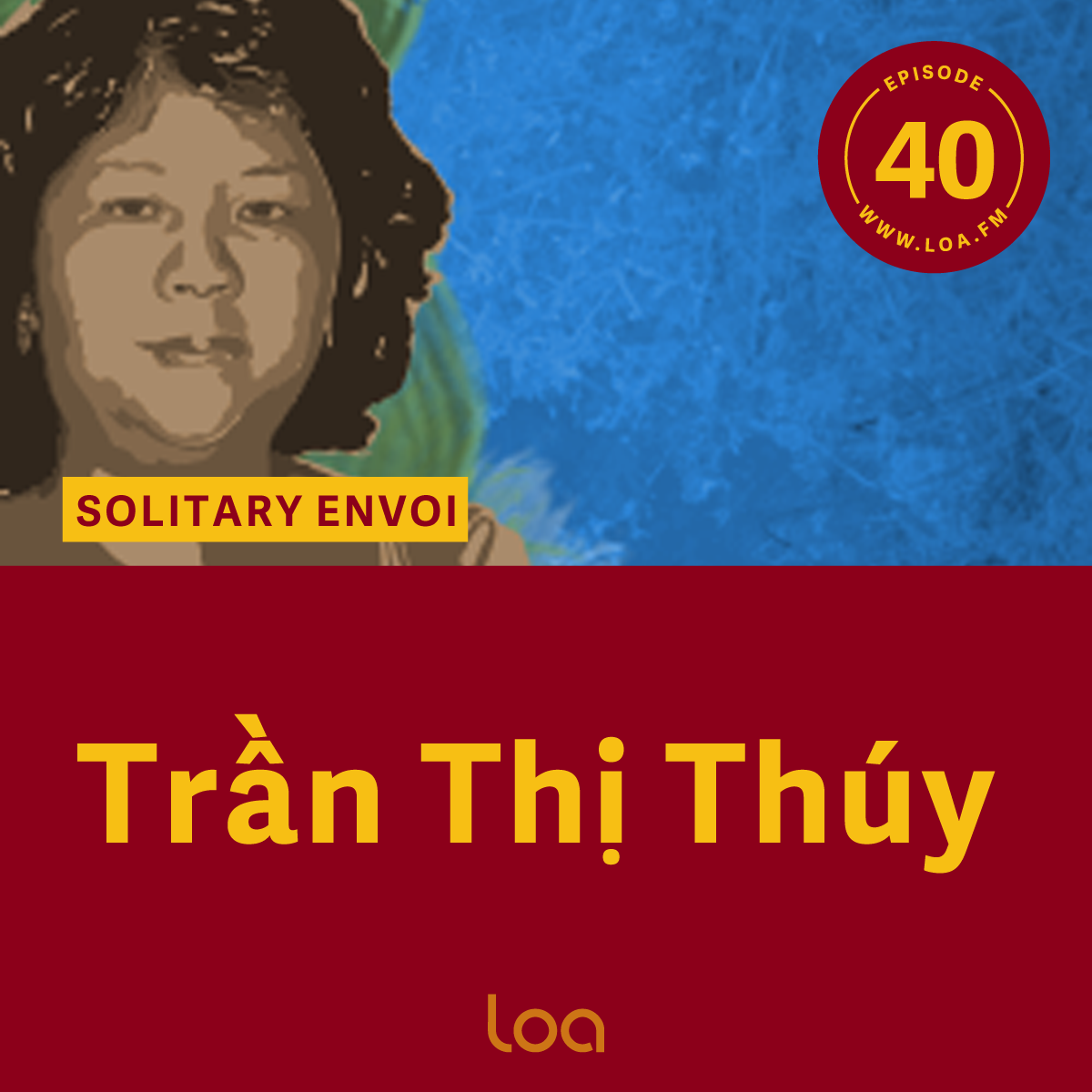Early this year, Trần Thanh Tuấn visited An Phước prison in Bình Dương province north of Sài Gòn. He returned with this message from his older sister, 43-year-old prisoner of conscience Trần Thị Thúy:
“Go home and alert the human rights organizations, the United Nations, and Vietnamese abroad to please do their best to take care of me. Even if I die in prison, I will never plead guilty to the Communist party because I did things for the people and for the country, to take care of the people and the country. My brothers and sisters at home, be at ease that I do not live in fear.”
Six years ago, Trần Thị Thúy, a land rights petitioner, was found guilty on charges of “attempting to overthrow the government.” After a trial of just a few hours she was sentenced to eight years in jail.
Her words are a testament to her fearlessness and irrepressible sense of justice.
Her brother, Tuấn, says,
“My sister is just a farmer who lost her land and fought back. But then she became a political prisoner. Back when she was still at home with us, whenever she saw anyone hungry or poor she always tried to help. When we petitioned for our land, neighbors donated a little bit of money, which she divided evenly among all the petitioners to live on. My sister never thought of just herself. She always saw it as a common cause. She said, ‘We know the corrupt, unfair exploitation, so we have to care for each other and shoulder each other’s burdens.’”
Since the trial, her family has been fighting for her well-being. Tuấn tells Loa his sister has been singled out by the authorities for a particularly inhumane treatment.
In a 2011 letter to human rights organizations, their mother wrote of Thúy’s untreated health issues while in prison, including pains related to forced physical labour usually reserved for men. She has caustic burns on her hands from skinning and husking cashews, a process that releases skin-eating acid and can be life-threatening.
Last summer, Thúy was discovered to be seriously ill.
A tumor in her uterus was found and she is suffering from gallbladder disease. After taking medication, her pain subsided. However, Tuấn tells Loa that since the new year, her condition has gotten worse.
“[Prison officials] told her, ‘If you want to get a medical examination, you have to admit your guilt before the government will allow you to get checked up,” Tuấn reports they also told her, “If not, you will just die a slow death here in prison. It’s up to you.”
But Tuấn knows she is not scared and will not give in. He says she would rather die with honour, than live with shame. Despite this, Tuấn says there is an urgent need for international attention.
Tuấn asks human rights organizations “to have a stronger voice for political prisoners to receive the same medical treatment as everybody else. These prisoners of conscience, all of them are innocent. They have not committed any crime against our country Việt Nam.”
Tuấn is not alone in his plea. Just this past December, Amnesty International issued an urgent call to action for anyone concerned to write letters to the Vietnamese government and urge for proper medical care for Trần Thị Thúy. The letter states* “This denial of treatment in these circumstances could amount to torture and therefore a violation of the Convention against Torture, which came into force in Vietnam in Feb. after ratification last year.”


